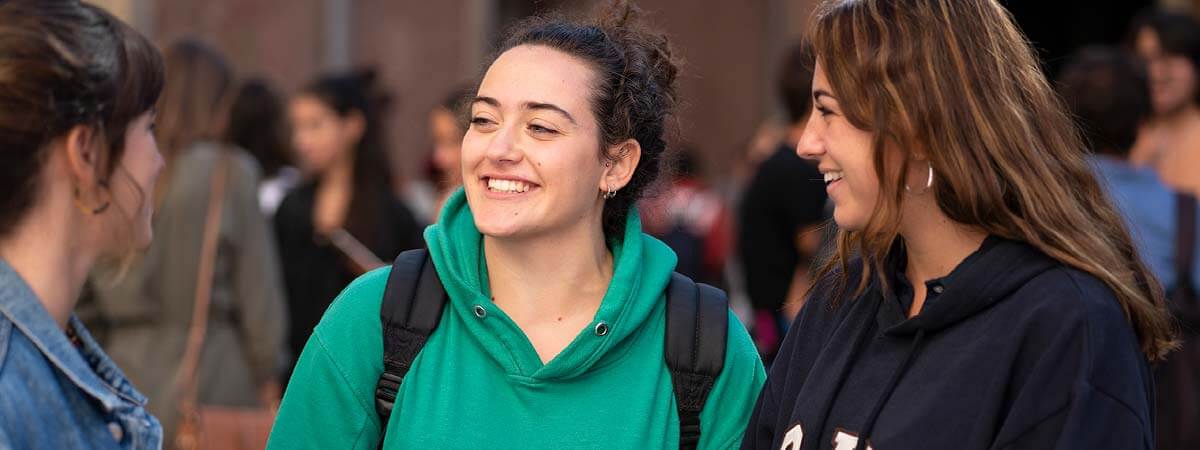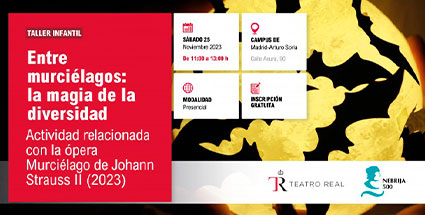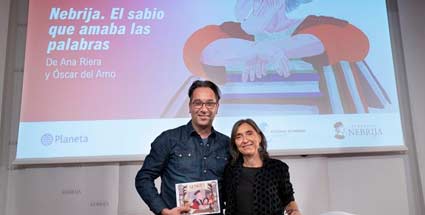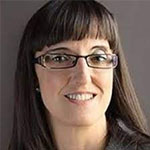Bachelor’s Degree in Social Education

Program to become an agent of social change
The Bachelor's Degree in Social Education allows you to devote yourself to a profession that actively promotes the improvement of social reality, together with the construction of a more just and caring world, through a great diversity of skills and socio-educational strategies.
It is a practical education with real experiences and exchanges with professionals to help minors, young people, women, immigrants, disadvantaged groups or those at risk of social exclusion, as described in the White Paper on Pedagogy and Social Education, which includes the fundamental bases in the training of this group of professionals.
With the Bachelor's Degree in Social Education, the student will learn to design socio-educational intervention actions and mediation strategies. Likewise, the student will play different types of roles within the framework of the policies of prevention, protection, insertion and promotion of citizenship, in a context of interdisciplinary networking.
The current panorama needs professionals who act as social educators, supporting those people at risk of social exclusion, who are especially vulnerable, people who do not have a voice in our society, but need resources and tools be integrated into society, to return and have an opportunity for personal and social development to which we all have a right.
Reducing the risk of poverty and social exclusion is one of the social integration objectives established in the European Union's growth strategy. Considering the current social, economic and educational context and global challenges, Social Education acquires an important social relevance in responding to these objectives. Likewise, Social Education favors the cohesion and social inclusion of people with different profiles who will require personalized and sustained support during their learning process (OCED, 2016), which requires collaborative work from different professionals involved in socio-educational intervention processes.
Read +Along the same lines, the social interest of the degree is linked to the Sustainable Development Goals (SDGs) of the 2030 Agenda. The goals pursued by the work of social education professionals and their fields of action connect directly with some of these objectives. The purpose of the SDGs is to intervene in the different contexts that work with Education, emphasizing the need to make efforts from education to achieve the full development of human rights, peace, the responsible exercise of citizenship, gender equality, sustainable development and health. In this sense, Social Education can be a facilitating agent of equality, non-discrimination, coexistence and the elimination of conflicts. Although Social Education is related, to a greater or lesser extent, to the 17 objectives (SDG1 "No Poverty", SDG2 "Zero Hunger", SDG 3 "Good health and Well-being", SDG4 "Quality Education", SDG5 "Gender Equality", SDG 10" Reducing Inequality", SDG16 " Peace, Justice and Strong Institutions" and SDG17 "Partnerships for the Goals"), it is worth highlighting, due to its special link with Social Education, Objective 4, aimed at achieving quality, inclusive and equitable education, and promoting lifelong learning opportunities for all, and goals 10 and 5, related to the elimination of inequalities due to gender, ethnicity or disability, among others, and goal 16, which seeks peaceful and inclusive societies.
Read LessThe Bachelor's Degree in Social Education is taught at the renovated facilities of the Madrid-Princesa Campus, in the center of Madrid, very close to Puerta del Sol and close to museums, galleries, institutions and transport.
Collaborating Entities

Diagrama Foundation
The University offers a collaboration agreement with the educational entity Fundación Diagrama
where students can carry out external academic internships.

Nuevo Futuro Association
The University has a collaboration agreement with the Nuevo Futuro Association. This collaboration offers students the opportunity to gain practical experience in the field of social education, working on projects and programs that support minors and families in vulnerable situations.
Ethical and pedagogical commitment to the profession and society
Curriculum
All our degrees and curricula have been prepared in accordance with the new guidelines set by current legislation, having already been verified by the National Agency for Quality Assessment.
The student must take 240 credits
First year 60 ECTS
First Semester 60 ECTS- 6 ECTS | Education in its historical and international context
- 6 ECTS | Social psychology
- 6 ECTS | English I
- 6 ECTS | Oral and written communication
- 6 ECTS | Professional competences I
Second Semester 30 ECTS- 6 ECTS | Fundamentals of Socio-educational intervention and professional Ethics
- 6 ECTS | Development I: Childhood
- 6 ECTS | Personality and Individual Differences
- 4 ECTS | Group psychology
- 4 ECTS | Socio-educational Intervention Models
- 4 ECTS | Planning and Management of Socio-educational Programs
Second year 60 ECTS
First Semester 30 ECTS- 6 ECTS | Social Pedagogy
- 6 ECTS | Social Education: Political and legislative framework
- 6 ECTS | English II
- 6 ECTS | ICT for education
- 6 ECTS | Didactics: Analysis and planning of educational practice
Second Semester 30 ECTS- 6 ECTS | Development II: Adolescence and adulthood
- 6 ECTS | Educational Guidance and Tutorial Action
- 4 ECTS | Education for Cooperation and Social Development
- 6 ECTS | Professional competences II
- 4 ECTS | Socio-educational Intervention in Problems of Social Maladjustment
- 4 ECTS | Education and Intercultural Mediation
Third year 60 ECTS
First Semester 30 ECTS- 4 ECTS | Attention to Linguistic and Cultural Diversity
- 6 ECTS | Psychopathology
- 4 ECTS | Statistics and data analysis in social sciences
- 4 ECTS | Organization and Management of Public Resources and Private Management
- 6 ECTS | Professional competences III
- 6 ECTS | Elective 1
Second Semester 30 ECTS- 4 ECTS | Business and Organizational Psychology
- 4 ECTS | Methodology of Sociocultural Animation
- 10 ECTS | Professional internship I
- 6 ECTS | Elective 2
- 6 ECTS | Elective 3
Fourth year 60 ECTS
First Semester 30 ECTS- 6 ECTS | Innovation and Research in Social Sciences
- 4 ECTS | Design and implementation of social education projects
- 4 ECTS | Continuing education
- 6 ECTS | Direction and management of Socio-educational teams
- 4 ECTS | The educator in reception and adoption processes
- 6 ECTS | Elective 4
Second Semester 30 ECTS- 4 ECTS | Evaluation of socio-educational programs
- 20 ECTS | Professional internship II
- 6 ECTS | Final Research Project
More information on these subjects
More Academic Information
Official Degree:Bachelor's Degree in Social Education
Center responsible:School of Language and Education
Branch of knowledge: Education
Available places: - Classromm attendance: 45
- Online: 200
Type of Education: Classromm attendance / Online
Academic year in which it was implemented: 2022 - 2023
Languages: Spanish / English
University Services: [+info]
Competences
Basic CompetencesIn Royal Decree 1393/2007 of October 29, which establishes the organization of official university education, the following basic competences are described:
- BC1: Students have demonstrated to possess and understand knowledge in an area of study, starting from the base of general secondary education, and is usually found at a level that, although supported by advanced textbooks, also includes some aspects that imply knowledge from the cutting edge of their field of study.
- BC2: That students know how to apply their knowledge to their work or vocation in a professional way, and possess the competences that are usually demonstrated through the elaboration and defense of arguments and the resolution of problems within their area of study.
- BC3: That students have the ability to gather and interpret relevant data (usually within their field of study) to make judgments that include a reflection on relevant issues of a social, scientific or ethical nature.
- BC4: That students can transmit information, ideas, problems and solutions to both specialized and non-specialized audiences.
- BC5: That students have developed the necessary learning skills to undertake further studies with a high degree of autonomy.
- GC1: Understand the scientific literature in the field of social education.
- GC2: Know and understand the objects of study of educational sciences.
- GC3: Acquire basic scientific training applied to social education in its different areas of intervention.
- GC4: Analyze the key foundations of the main socio-educational problems of today's society.
- GC5: Know and understand the ethical and social implications of educational interventions.
- GC6: Promote, develop and evaluate socio-educational intervention strategies.
- GC7: Apply and develop programs in the area of social education, where multiple factors and socio-educational agents intervene.
- GC8: Evaluate educational intervention programs and strategies.
- GC9: Know how to apply information and communication technologies to the field of social education.
- GC10: Show skills for autonomous learning and adaptation to new situations in the field of social education.
- GC11: Assess and make critical and quality judgments in professional practice, acting with respect to the necessary ethical principles in the area of social education.
- GC12: Demonstrate the acquisition of the necessary skills for professional practice in the field of social education.
- GC13: Clearly present, orally and in writing, complex problems and projects within their field of study.
- SC1: Understand the trajectory of consolidation of Social Education.
- SC2: Know the state and regional legal framework of Social Education and the legislative models developed in other countries, as well as the different quality systems linked to them.
- SC3: Know the assumptions and theoretical foundations of socio-educational intervention and its fields of action.
- SC4: Know the psycho-evolutionary stages of the population with which one works.
- SC5: Understand the pedagogical, psychological and sociological cases that sustain the processes of socio-educational and socio-health intervention.
- SC6: Know the fundamental characteristics of the social and work environments of intervention in the field of social education.
- SC7: Analyze and explain the theory and methodology for socio-educational and socio-healthcare evaluation.
- SC8: Use didactic resources for educational intervention.
- SC9: Apply tools and strategies for socio-healthcare intervention and develop socio-educational projects (cultural, animation and leisure, community intervention, etc.), with a gender perspective.
- SC9: Apply tools and strategies for socio-healthcare intervention.
- SC10: Identify structures and processes of participation and community action.
- SC11: Analyze and identify the main risk factors associated with basic conflicts in the area of social education, in order to resolve them.
- SC12: Develop mentoring, mediation and guidance functions for children, youths and families, attending to their educational needs.
- SC13: Evaluate and design sociocultural and leisure activities in diverse environments with diverse groups.
- SC14: Design and evaluate programs and strategies for intervention and socio-educational and socio-healthcare prevention in the various work areas of social education.
- SC15: Analyze the processes and social, institutional, personal and material resources available for socio-educational and socio-healthcare intervention.
- SC16: Know and use information and communication technologies in the educational context.
- SC17: Show linguistic competences that favor work in multicultural and multilingual environments.
- SC18: Use qualitative and quantitative statistical techniques for understanding and diagnosing social needs.
- SC19: Design innovation projects or introduction of research in the area of social education.
- SC20: Apply the knowledge acquired in the Bachelor's Degree for the development, presentation and defense of a paper in the area of social education, which synthesizes the competences acquired in the degree.
- SC21: Analyze the legal models developed in other countries, as well as the different quality systems linked to them.
- SC22: Prepare socio-educational projects (cultural, animation and leisure, community intervention, etc.), with a gender perspective.
Online Study
All Nebrija University programs, taught in online modality, have a methodological framework for teaching and learning that is adapted to the digital context, at both a technological and pedagogical level. The degree of application of the methodological model will depend, in part, on the type of program and the student profile.
In general, this model is characterized by:
- Promoting practical and skill-oriented learning.
- Committing to interactive and participatory pedagogy.
- Edu-communication model adapted to virtual settings.
- Promoting creative and autonomous thinking in students.
- Humanistic approach to Information and Communication Technologies.
The Directors/Academic Coordinators of the Program and the teaching staff have supporting documentation and specialized training for the application of the model, both in designing and teaching the programs taught in the virtual modality. This documentation is published on the Teaching Innovation Campus, which is accessible to all professors, and consists of:
- 1. Teaching Methodology framework document and for the Nebrija Global Campus Learning.
- 2. Guides and video tutorials on the operation of the Virtual Teaching and Learning Platforms.
- 3. Digital Netiquette.
- 4. Templates for the development of academic content.
- 5. Digital format guides.
- 6. Video tutorials.
Regarding education, each academic year the Training Department (HR) and Global Campus design a training program for professors to improve digital skills applied to teaching and research, based on general sessions and specialized on the operation of digital platforms and tools; didactic design in these environments, elaboration of didactic content, communication and evaluation models in virtual spaces, etc. Some of these training sessions are recorded and published on the Teaching Innovation Campus.
Virtual Campus
El escenario virtual principal de desarrollo de los procesos de enseñanza y aprendizaje es el campus virtual. En la Universidad Nebrija el campus virtual está soportado por la plataforma LMS Blackboard Learn. Tal y como se ha indicado anteriormente, en el caso de los programas que se impartan en colaboración o estén sujetos a convenio con otras instituciones y/u organizaciones, se podrá valorar el desarrollo académico a través de otras plataformas LMS, como Moodle, Canvas, Dokeos, Chamilo, Sakai, etc.The main virtual stage for the development of teaching and learning processes is the virtual campus. At Nebrija University, the virtual campus is supported by the LMS platform Blackboard Learn. As stated previously, in the case of programs that are taught in collaboration or are subject to an agreement with other institutions and/or organizations, academic development may be assessed through other LMS platforms, such as Moodle, Canvas, Dokeos, Chamilo, Sakai, etc.
Students and professors have two types of courses on the virtual campus:
- Coordination courses: contain general information and documentation of the degree.
- Subject courses:they are the space for academic development of the subjects. The presentation of the contents (structure, sequencing and construction of learning objectives), as well as communication and some of the evaluation actions of the programs taught in the virtual modality, are carried out in this space.
The use of Blackboard Learn tools, as with other platforms, is preceded by the most appropriate methodological design according to the type of program and student profile, taking into account: content, communication process and monitoring and evaluation activities:
Content
Formats:
- Text: PDF, Word, PPT, eBooks, weblinks, etc.
- Multimedia: Videos (Kaltura/external platforms), podcasts, etc.
- Graphic: photographs, images, infographics, drawings, etc.
- Hybrid: SCORM, video lessons, simulations, etc.
Structure and sequencing in modules and didactic units based on the academic objectives of the subject:
The contents prepared by the professors of the Nebrija Global Campus programs have format templates and are subject to a double review system. On the one hand, the program director reviews the academic content and, on the other, a format review is carried out from Global Campus. In the case of multimedia and audiovisual content, production standards have also been established to facilitate their creation.
Communication process: channels, tools and dynamics (synchronous and asynchronous communication)
Announcements:
One-way communication tool (one-to-many) through which professors send relevant information to students through the virtual platform (Blackboard Learn). These communications, which are normally text (including other types of resources), arrive via a notification to the student's email and, in addition, are published on the subject's virtual campus. It is a basic tool for degrees taught in the virtual modality, since they are a source of information for students and they set the tone that professors will use in their communications with students. The most common uses are:
- Welcome message to students at the beginning of the academic year.
- Communication on the publication of relevant documentation.
- Notices about changes in the academic program.
- Notices about the publication of content, activities or activation of tools (for example, when a new discussion forum is activated).
- Reminders about deadlines and dates indicated for the submission of exercises, activities, etc.
- Notice about posting of grades, etc.
Forums:
Asynchronous communication tool that allows the exchange of messages between students and professors through conversation threads. Its use encourages communication, debate and dialogue, collaborative work, group cohesion and joint construction of knowledge (socialization space).
Videoconferences:
Synchronous communication tool that allows simultaneous interaction by voice, video and text (and other resources) between multiple interlocutors, and that has the possibility of being recorded for later viewing. In the programs that are taught in virtual modality, synchronous attendance is not compulsory, although it is a very useful tool in the technology-mediated teaching-learning process. There are different implementation strategies in virtual (distance) and hybrid (blended) programs, taking into account the technical characteristics of the medium and its didactic design:
- Master lecture by the professor (lessons).
- Collaborative session.
- Master lecture with guest speakers.
- Tutoring sessions and group discussions.
- Presentation of student work.
Monitoring and evaluation activities of the subject, both individually and in groups (collaborative and cooperative activities)
- Individual/group evaluation activity.
- Multiple-choice assessment/self-assessment tests.
- Blogs and diaries (individual/group).
- Wikis.
Admission Requirements
For the purposes of pre-admission and admission, the evaluation of the candidate will be done with a scale ranging from 0 to 10 points, taking into account the following criteria and percentages:
- Academic transcript/certificate of the student's route of origin: 60%.
- Multiple-choice psychotechnical test: : Evaluation 5%
This test consists of a personality assessment test that explores the emotional, intellectual, social and norms and values areas of each candidate student of the Bachelor's Degree in Social Education at the Antonio de Nebrija University. - English level test: Evaluation 5%
Within the competences established in the Bachelor's Degree in Social Education, one has been added regarding the adequate knowledge of the English language, both oral and written. The English level test consists of a written exam with multiple-choice questions, oral and written comprehension, and use of the language. They can be taken face-to-face or online, and depending on the results of this test, the student will be placed at the corresponding level. In order achieve the maximum score, the student must show that they have at least a level equivalent to B1 in that language.
It will not be necessary for the candidate to take the language placement test if they submit a document that proves their level of English. The accreditation of the level will be validated through the official diplomas established by the table of certificates accepted by ACLES. Valid for one year. Students taking degrees in which subjects are taught in English must have an accredited B2 level in that language. - Specific test of knowledge about the Bachelor's Degree in Social Education. Evaluation 10%.
It is a multiple-choice test and consists mainly of specific content of some of the main areas of general knowledge of the degree to be taken by the candidate, in addition to other elements common to all degrees. - Personal interview: Evaluation 20%.
As a strategy to know the applicants’ characteristics, the academic department will try to determine if the candidate has enough motivation, training and knowledge, skills, aptitudes, communication skills, extracurricular activities and future interests necessary to be admitted to the Antonio de Nebrija University as a student if the Bachelor's Degree in Social Education. This test can be done orally or in writing.
Employability
Career Opportunities
The Bachelor's Degree in Social Education equips students to engage in the advancement of community development, social and cultural inclusion, equal opportunities, gender equality, adult and elderly education, and health promotion.
Social Educators operate across diverse social contexts, including educational, social, and cultural mediation, as well as the design, implementation, and evaluation of socio-educational programs and projects. They also contribute to adult education, career guidance, addressing functional diversity, promoting gender equality, fostering interculturality, addressing addictions and eating disorders, conducting sociocultural animation, and participating in international cooperation efforts, among other areas.
This bachelor's degree empowers graduates to work with both the general population and specific groups of all ages who, due to their characteristics or personal circumstances, encounter particular challenges in their social, work, and/or educational integration.
Social Educators fulfill their professional roles through employment opportunities in both public and private entities, including:
The figure of the social education professional is regulated in the collective agreements of the Third Sector, where their competences, qualifications and functions are specified, as well as in the improved agreements that are published by the different social entities.
In the field of Public Administration, a specific professional profile fitting that of Social Education is requested for different action areas. Such is the case of common administrative procedures such as tenders and subsidies that are regulated under the Public Sector Contract Law. In this sense, taking into account the specific action and intervention service, the state and regional regulations that regulate the operation of said services will be taken into account. For example: In the case of a tender for the management of compliance with judicial measures of minors under 18 years of age in detention centers, in addition to the Juvenile Justice Law, the Decree that regulates the organization and operation of the Centers will be taken into account, which clearly specifies which is the team that must be at the disposal of the Service and the profile of each professional. The figure of the Social Education professional can be found in these teams.
Lastly, due to the fact that Social Education is in any field of action within the social field, Public Administrations have considerably increased the offer of public employment for social education professionals, either for Secondary Schools or Community Social Services, among others. In these cases, the required qualification must be to have a university degree, either an Associate's or Bachelor's Degree in Social Education. If there are indications of not complying with the requirement of specialized training, there will be no qualified professionals.
Thus, we can affirm that employability in the field of Education is wide and diverse, allowing the presence of these professionals in institutions and entities of a public and private nature, exercising their functions both with the general population and with groups that are in a situation vulnerability or at risk of social exclusion.
Employability recognized in the Rankings
The commitment of Nebrija University to the academic requirement, training in leading companies and institutions, innovation in multidisciplinary programs and international projection, places the University in the top positions of the most important rankings.
The International Ranking QS Stars awards Nebrija University the maximum score in the quality and satisfaction of students in teaching, employability of the graduates and the internationalization of the institution.
The national rankings also recognize Nebrija University as the first Spanish university in teaching and second in employability, highlighting its performance in research, knowledge transfer and internationalization.
Nebrija University, in accordance with the objectives proposed in "The Nebrija Contract", directs its efforts into turning its students into valuable professionals in the labor market. To this end, the Nebrija Institute of Professional Competences (INCP) was created, which leads training in professional competences, employability, managerial skills, coaching, personal branding and any other subject related to professional, personal and social development.
The activity of the Competence Institute comprises all the university's activity segments. On the one hand, it carries out three subjects that are distributed throughout the Bachelor's Degree and that enable students to effectively manage their work, proactively develop personal and professional self-improvement processes and properly guide their first steps in the working world. In addition, the INCP incorporates coaching modules for employability in different university postgraduate programs, and designs and carries out in-company training actions tailored for different projects in companies and institutions.
The methodology of these actions, which is completely personalized and eminently practical, provides the participant with an adjusted analysis of their personal characteristics and their adaptation to the demands of the working world and the company, and offers an individualized development plan that is complemented by practical actions. through which they must learn to solve real life situations.
International
The International Mobility Office of Nebrija University makes a constant effort to monitor the agreements with the most prestigious universities. Students will be able to attend an annual or semester period in universities in Europe, America, Asia and Australia. This option will broaden their vision of the world, in addition to their linguistic training, and will prepare them to rigorously carry out their professional work anywhere in the world.
University life in Social Education
Visit all the Activities of the School of Language and Education

Children's Workshop "Among Bats"
As part of the activities alongside the Royal Theater project, students enrolled in the Education Degrees have organized a workshop centered around Johann Strauss II's opera, "The Bat".
See articleLet's talk about Education
Second chapter of the video podcast specialized in Education, which discusses emotions in the classroom and how they affect language learning.

Nebrija, the wise man who loved words
Presentation of the illustrated book on Antonio de Nebrija aimed at children between 8 and 11 years old. A graphic and educational approach to the life of the father of Spanish grammar.
See article
Minors and Social Networks
Study published by Mónica Moreno and Mercedes Pedrajas, professors at the University, on the addiction of minors to Social Networks and the possible solutions available to families.
See article
Ecological transition at school: education, buildings and school environments
Article published by Alexandra Delgado, professor at Nebrija University, on the ecological transition, the social change that it entails and the importance of applying this process in Education.
More informationXVIII Multilingual Classroom
The 18th edition of the Plurilingual Classroom on the Environment held at the Nebrija University brings new environmental projects to students with the aim of raising awareness from a multicultural angle.




